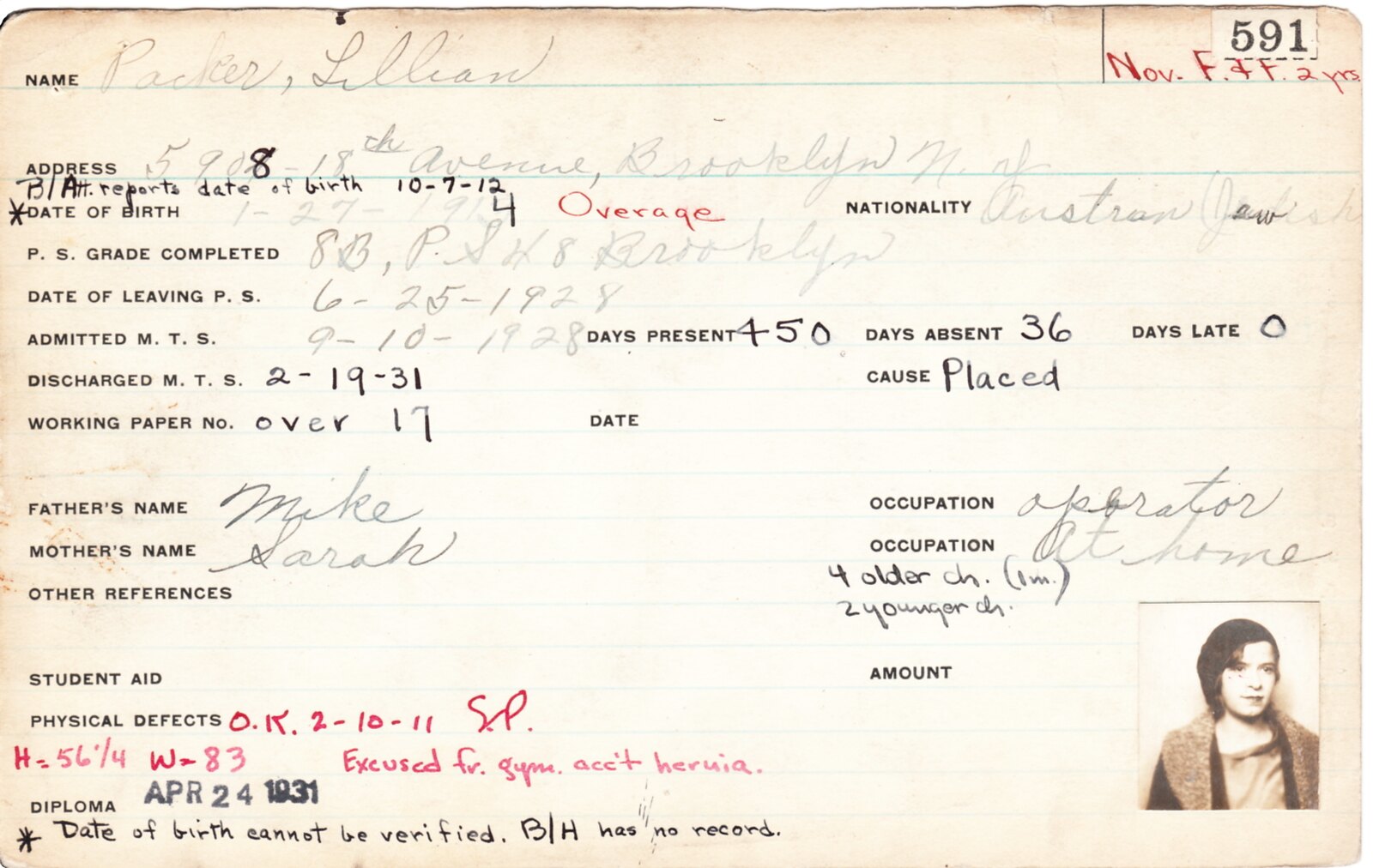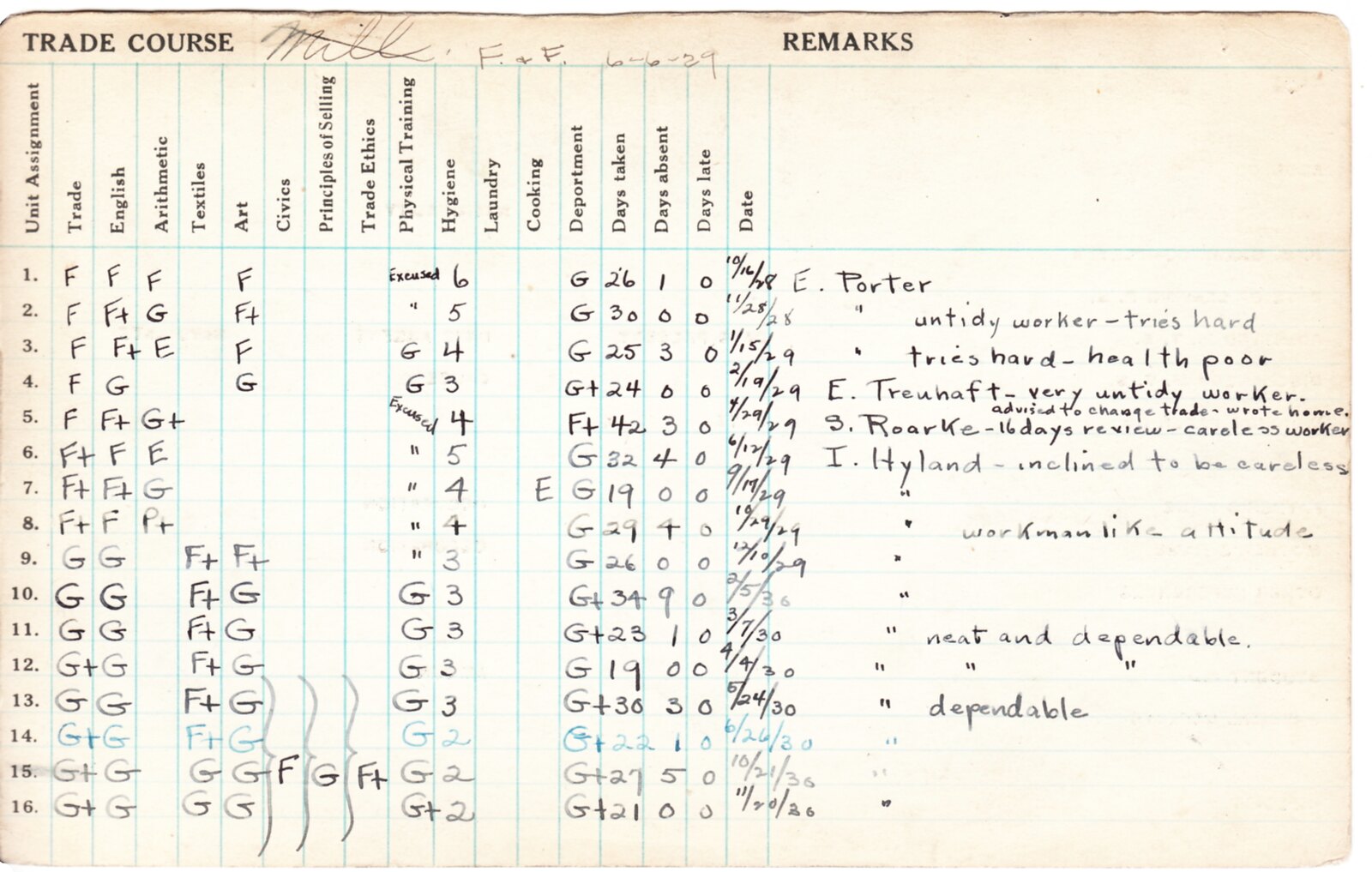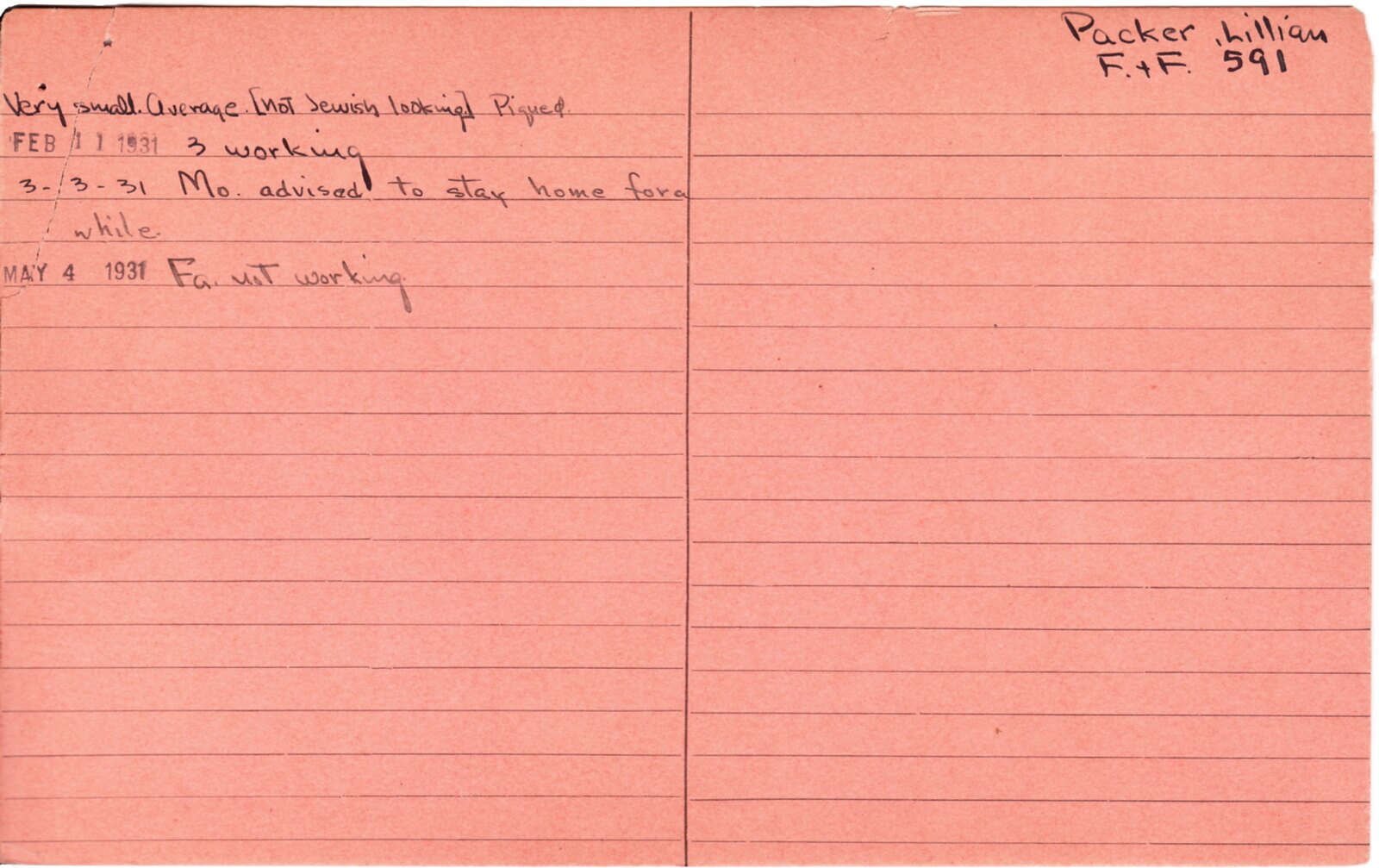
The Manhattan Trade School for Girls was founded and staffed by high-minded reformers — people we would generally consider to be progressives (at least in the cultural dimension of that term, if not necessarily the political one). So it's surprising when a blatantly retrograde comment shows up on one of the Manhattan Trade report cards in my collection. That's the case with Lillian Packer, the student whose primary record card is shown above.
As you can see, Lillian began attending Manhattan Trade in June of 1928, when she was about 15 (it's hard top be certain because her date of birth "[could] not be verified"). She was from a large family of Austrian Jews who lived in Brooklyn. She was a small girl — 4'8¼", 83 pounds — and was excused from gym class due to a hernia. Like many of the students, she took an appealing photo:

If we turn the card over, we see Lillian's grades, which show that she was a solid if unspectacular student (remember, E = Excellent; G = Good; F = Fair; P = Poor):

Interestingly, two of the early comments refer to Lillian being "untidy" and another describes her as "careless," but later on she's described as "neat and dependable." We've seen this same pattern on many of the other report cards we've examined — early critical assessments followed later on by more approving comments. It's unclear whether the students actually improved or if the school had a deliberate strategy of using early criticisms as a form of motivation.
Lillian's employment record was short and unremarkable:

And now we get to the card with the unfortunate comment. Here, take a look:

And there it is: "Very small. Average. (Not Jewish looking.) Piqued."
The assessment of Lillian as being "not Jewish looking" echoes the comment about Edna Carrington, the black student whose record includes the line, "Skin not terribly dark." It appears that the school found it particularly noteworthy when a student looked "less ethnic," so to speak. Such comments would never appear in a student's record today, but it's worth noting that many Jews still worry about looking "too Jewish" and many blacks still worry about looking "too black," showing that certain cultural prejudices have been stubbornly difficult to extinguish.

No comments:
Post a Comment